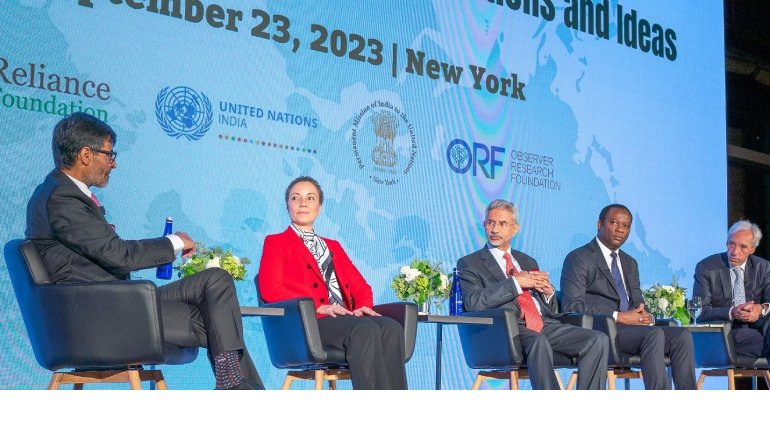Two high-level discussions in New York by Reliance Foundation, Observer Research Foundation, UN India office, and Permanent Mission of India emphasized the Indian approach and her leadership in achieving SDGs. The entities had assembled on a form named Delivering Development: Journeys, Directions and Lighthouses.
They also released a publication: Ideas, Innovation, Implementation: India’s Journey Towards the SDGs. The publication showcases 17 lighthouse initiatives aimed at achieving 17 Sustainable Development Goals (SDGs) by not-for-profit organizations and communities. It highlights the potential of implementing these ideas to expedite the achievement of the SDGs and establish a solid foundation for a post-2030 agenda.
Ms. Ruchira Kamboj, Permanent Representative of India to the UN, said, “We refuse to make a choice between fighting poverty and protecting our planet. Instead, we will pursue sustainable, inclusive, and equitable transitions. We will foster transparency and share best practices that leave no one behind.”
S Jaishankar, External Affairs Minister was a panellist on South Rising: Partnerships, Institutions and Ideas’ India. He said, “SDGs, green development, women-led development, and digital public infrastructure would determine global progress for the next decade. We need political rebalancing and economic and cultural rebalancing as part of the G20. None of this can go beyond a point unless diverse cultures and traditions get their due respect. From millets to traditional medicine, respecting others; heritage, tradition, music, ways of life –are the changes the global south must see.”
Jamaica’s Minister of Foreign Affairs and Foreign Trade, Ms. Kamina Johnson Smith, emphasized India’s assistance, particularly to smaller nations.
“The question of who to call and, more importantly, who would answer came up when you needed to rely on friends for support. India responded to both the larger world and the smaller Caribbean nations,” she said.
Mr. Jagannatha Kumar, CEO of Reliance Foundation, emphasized the significance of planning beyond 2030. Mr. Shombi Sharp, the UN Resident Coordinator for India, spoke about multi-stakeholder and public discussions surrounding the SDGs. Samir Saran, the president of ORF, emphasized the importance of amplifying the voices of those who are marginalized in society.

